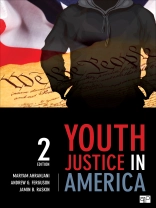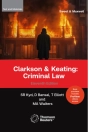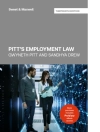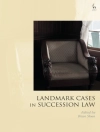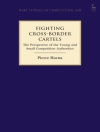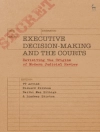Youth Justice in America, Second Edition engages students in an exciting, informed discussion of the U.S. juvenile justice system and fills a pressing need to make legal issues personally meaningful to young people. Written in a straightforward style, the book addresses tough, important issues that directly affect today′s youth, including the rights of accused juveniles, search and seizure, self-incrimination and confession, right to appeal, and the death penalty for juveniles. Focusing on cases that relate to the Fourth, Fifth, Sixth, and Eighth Amendments to the U.S. Constitution, the subject matter comes alive through a wide variety of in-book learning aids.
İçerik tablosu
Chapter 1: American Society, Crime, and the Constitution
The Constitution and Crime
“We the People” and the War on Drugs: Politicians and Their Families, Athletes, Entertainers
Criminal Justice: Not the End of the Story
The American System of Juvenile Justice
Chapter 2: What Is Crime?
Constitutional Limits on Government’s Power to Make Crimes
The Structure of Criminal Laws
Chapter 3: The Second Amendment, Youth, and Schools
The Second Amendment and Young People
The Second Amendment and Schools
Chapter 4: Fourth Amendment: Protection from Unreasonable Searches and Seizures
The Right to Be Left Alone
The Exclusionary Rule
Reasonable Expectation of Privacy
Fourth Amendment Search
Other Expectations of Privacy
What Is a Seizure?
Probable Cause and the Warrant Requirement
Chapter 5: Exceptions Swallow the Rule: Warrantless Searches
Exception 1: Emergency Circumstances
Exception 2: Plain View
Exception 3: Search Incident to an Arrest
Exception 4: Automobile Exception
Exception 5: Consensual Searches
Exception 6: Stop and Frisk
Exclusionary Rule Review
Chapter 6: School Searches
Search of Belongings
Drug Testing and After-School Activities
Drug Testing for All Students?
Strip Searches
Metal Detectors and the Constitution
Chapter 7: Fifth Amendment: Privilege against Self-Incrimination
The Screaming Eagle
Protections against Self-Incrimination
Juveniles and the Miranda Warnings
What Is Custody?
Pull Over, Jack
What Is Interrogation?
The Dangers of False Confession
Chapter 8: Sixth Amendment: Right to Counsel
The Right to Legal Counsel
Role of Legal Counsel
Role of the Defense
Right to Counsel for Juveniles
Right to Effective Counsel
Reality of Ineffective Counsel
A Quick Career Quiz
Chapter 9: Cruel and Unusual Punishment
The Death Penalty Today
The Death Penalty and Juveniles
Turning Over a New Leaf?
Juveniles and Life Imprisonment Without Parole
Chapter 10: The Future of Youth Justice
The Goals of Criminal Punishment
Record Prison Populations
The Racial Dynamics of the Criminal Justice System
Felon and Ex-Felon Disenfranchisement
Gendered Offenders
Life in Prison without Parole
Yazar hakkında
Jamin B. Raskin is professor of constitutional law and the First Amendment at American University Washington College of Law and founder of its Marshall-Brennan Fellows Program, which places law students in public high schools to teach the We the Students constitutional literacy course. A former assistant attorney general for the Commonwealth of Massachusetts, Raskin is an active public interest lawyer, defending the rights of political expression and participation for both adults and young people. He is also the author of Overruling Democracy (2003) and dozens of law review articles, op-eds, and essays on constitutional law.
